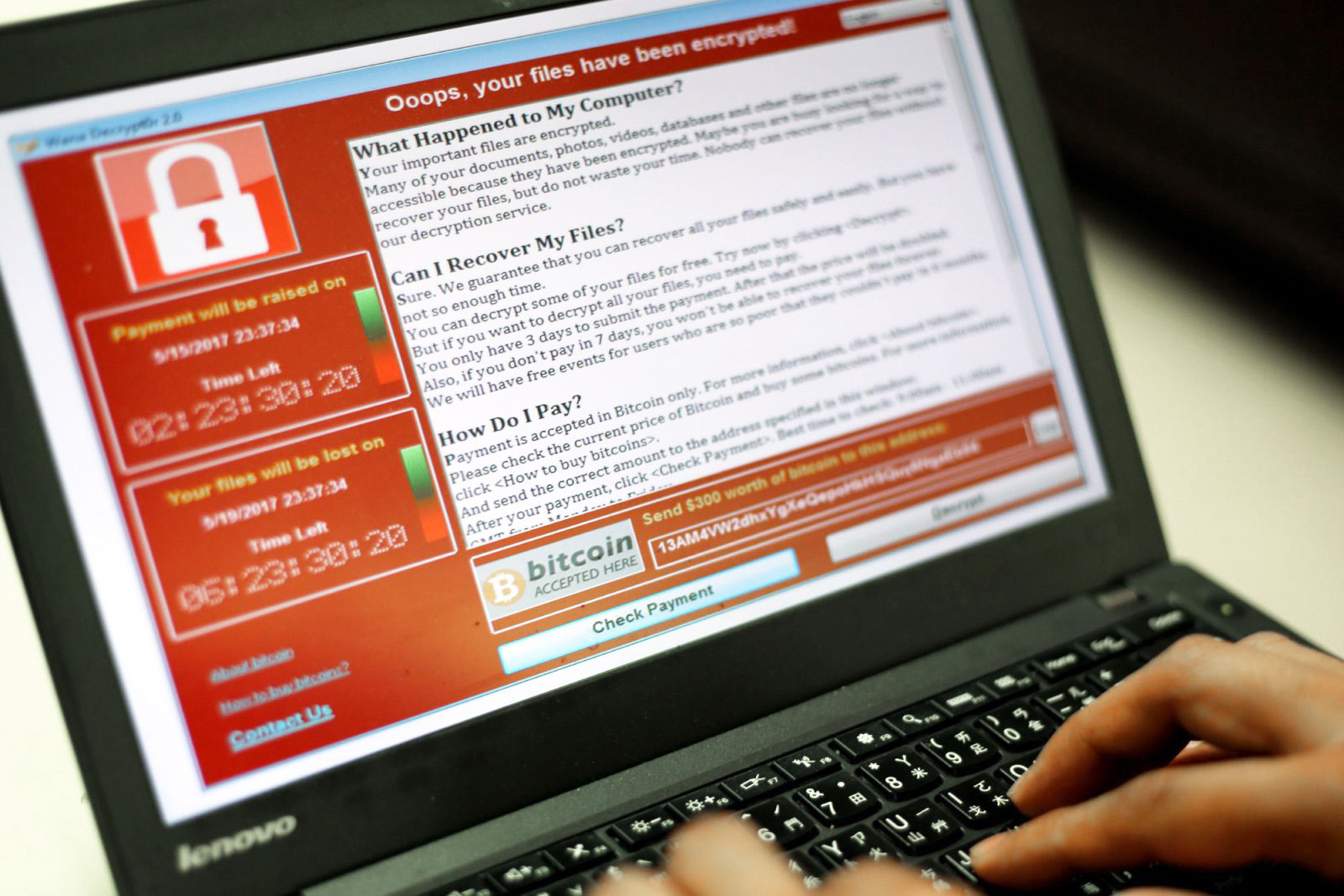Daily chart: Ransomware attacks were on the rise, even before the latest episode
|
The Economist, 1/1/0001 12:00 AM PST Main image: THE internet is wonderfully useful. The autodidact no longer needs a library. The film aficionado can live without a cinema. But life is easier for the extortionist as well, who can rob hundreds of thousands of people at once while still in pyjamas. Such power was on ample display this weekend, when a large cyber-attack afflicted an estimated 200,000 computers in 150 countries.The cyber-attack, dubbed “WannaCry”, was built to go global. It helpfully offers victims translations of its demand for money in 28 different languages, and does not discriminate much in its targets. Chinese universities, Russia’s interior ministry and Britain’s National Health Service (NHS) all saw their computer systems taken hostage in the attack. WannaCry is only the most recent example of “ransomware”, malicious programs that block access to files unless the victim pays off the hackers (usually in Bitcoin, an untraceable digital currency).Since 2014 the varieties of ransomware have more than tripled, according to the Internet Security Threat Report by Symantec, a computer-security vendor—a sign that internet bandits are catching on to the lucrative rewards it offers. The FBI reckons that CryptoWall, a particularly nasty strain of ransomware, netted at least $18m for cyber-crooks in 2015. Hackers are also ... |
Daily chart: Ransomware attacks were on the rise, even before the latest episode
|
The Economist, 1/1/0001 12:00 AM PST Main image: THE internet is wonderfully useful. The autodidact no longer needs a library. The film aficionado can live without a cinema. But life is easier for the extortionist as well, who can rob hundreds of thousands of people at once while still in pyjamas. Such power was on ample display this weekend, when a large cyber-attack afflicted an estimated 200,000 computers in 150 countries.The cyber-attack, dubbed “WannaCry”, was built to go global. It helpfully offers victims translations of its demand for money in 28 different languages, and does not discriminate much in its targets. Chinese universities, Russia’s interior ministry and Britain’s National Health Service (NHS) all saw their computer systems taken hostage in the attack. WannaCry is only the most recent example of “ransomware”, malicious programs that block access to files unless the victim pays off the hackers (usually in Bitcoin, an untraceable digital currency).Since 2014 the varieties of ransomware have more than tripled, according to the Internet Security Threat Report by Symantec, a computer-security vendor—a sign that internet bandits are catching on to the lucrative rewards it offers. The FBI reckons that CryptoWall, a particularly nasty strain of ransomware, netted at least $18m for cyber-crooks in 2015. Hackers are also ... |
Buy a Green Card With Bitcoin? US Officials Weigh Impact on EB-5 Program
|
CoinDesk, 1/1/0001 12:00 AM PST US immigration services are actively weighing the question of whether bitcoin can be used to pay for obligations tied to a controversial visa program. |
Banks aren't speaking customers' language
|
Business Insider, 1/1/0001 12:00 AM PST
This story was delivered to BI Intelligence "Fintech Briefing" subscribers. To learn more and subscribe, please click here. Customer education within financial services has increasingly come under the regulatory spotlight, and there seems to be every reason to devote more attention to the issue, according to a new study by pollster YouGov. The study surveyed 12,507 bank customers worldwide, and looked at attitudes toward the banking industry. Among the aspects investigated was the effectiveness of banks' customer communication. When asked if they agree that banks use confusing language, here's what respondents had to say:
That over half of customers in all countries surveyed are confused by bank jargon should give these players serious food for thought. Improving their communication efforts — including by moving their education materials from a print to digital format, and streamlining the content of such materials — is becoming especially important as more neobanks enter the financial space. These newcomers base their proposition, to a large extent, on optimizing customer engagement and transparency, meaning that if big banks want to retain customer loyalty and market share, they will have to start thinking about communication from their clients' perspective. Weighed down by a sluggish global economy, turbulent capital markets, and heavier regulation after the 2008 financial crisis, many big banks have scrimped on innovation. In doing so, they've failed to keep up with customers' embrace of and demand for all things digital and mobile. That's opened the door to a new breed of banks dedicated to delivering an optimal digital customer experience: digital-only "challenger banks," or "neobanks." These players' agile, modular, wholly digital systems let them adapt quickly to changing consumer demands and expectations, threatening incumbents. However, the big banks still have the edge in consumer trust. This gives legacy firms a window of opportunity to launch digital subsidiaries of their own to fend off the upstarts. Maria Terekhova, research analyst for BI Intelligence, Business Insider's premium research service, has compiled a detailed report on digital-only challenger banks that looks at the features that make neobanks a distinct new competitor, the range of models they're adopting, and the regions in which neobanks are particularly flourishing. We also discuss the challenges neobanks still face, and the opportunity these obstacles present for incumbents to get ahead in the transition to digital banking. Here are some of the key takeaways:
In full, the report:
Interested in getting the full report? Here are two ways to access it:
|
NHS Trusts ignored patch that would’ve averted malware disaster
|
Engadget, 1/1/0001 12:00 AM PST
|
(+) Daily Analysis: Oil Surges on OPEC-Deal Extension as Ripple Tests Highs
|
CryptoCoins News, 1/1/0001 12:00 AM PST […] The post (+) Daily Analysis: Oil Surges on OPEC-Deal Extension as Ripple Tests Highs appeared first on CryptoCoinsNews. |
Litecoin Price Drops Almost 10% After Segwit Activation
|
CryptoCoins News, 1/1/0001 12:00 AM PST […] The post Litecoin Price Drops Almost 10% After Segwit Activation appeared first on CryptoCoinsNews. |
Nearly $53k in Bitcoin Ransoms Paid with WannaCry Ransomware
|
CryptoCoins News, 1/1/0001 12:00 AM PST […] The post Nearly $53k in Bitcoin Ransoms Paid with WannaCry Ransomware appeared first on CryptoCoinsNews. |
NSA-Derived Ransomware Is So Serious, Microsoft Is Patching Old Windows Versions
|
ExtremeTech, 1/1/0001 12:00 AM PST
The WannaCrypt ransomware that struck on Friday is so risky, Microsoft has taken the highly unusual step of pushing security updates for operating systems well outside its support window. Unless you feel like paying out a hefty chunk of Bitcoin ransom, we recommend updating your OS, now. The post NSA-Derived Ransomware Is So Serious, Microsoft Is Patching Old Windows Versions appeared first on ExtremeTech. |
$1,700? Even Bitcoin Tech Leaders Don't Know Why the Price is Up
|
CoinDesk, 1/1/0001 12:00 AM PST Amid scaling battles and upgrade standstills, bitcoin's price continues to rise. So what's causing all the momentum? |
Palestinian Govt Plans to Launch ‘Bitcoin-Style’ Digital Currency: Report
|
CryptoCoins News, 1/1/0001 12:00 AM PST […] The post Palestinian Govt Plans to Launch ‘Bitcoin-Style’ Digital Currency: Report appeared first on CryptoCoinsNews. |
The global ransomware attack has made $49,000 — but the attackers will have a hard time claiming it
|
Business Insider, 1/1/0001 12:00 AM PST
This weekend's massive cyberattack has made the as-yet unidentified attacker behind it more than $49,000 (£37,900) — but they're going to have a hard time claiming it. On Friday, computers around the world were hit with a devastating piece of ransomware — malicious software that encrypts the victim's data then demands a bounty ($300, in this case) to unlock it again. With the help of a leaked software exploit developed by the NSA, it spread to at least 150 countries round the world, wrecking havoc everywhere from Britain's National Health Service (where it shut down hospitals and cancelled operations) to Spanish telecoms giant Telefónica. Ransomware bounties are generally paid in bitcoin, a digital currency that keeps its users anonymous. But bitcoin is also traceable — every transaction is written on a public ledger (called the "blockchain"), meaning you can trace any payments throughout the network. Analysis from experts has found that the "WannaCry" ransomware directed ransoms to be paid towards three "wallets." By examining these wallets, you can see exactly how much has been paid so far. As of writing, it's $49,603-worth of bitcoin, with new payments coming in regularly, and no attempts to more the funds or cash out yet.
This figure is likely to continue to rise as people come into the offices around the world on Monday and turn on already-infected infected computers for the first time.
And then there's law enforcement, who — because of the sheer scale of the attack — are going to be seriously motivated to get to the bottom of it. "There is definitely a sweet spot for leveraging online crimes. You want to use scale to make money, not enough scale to get LE [law enforcement] to wake up," Facebook's chief security officer Alex Stamos tweeted on Saturday. "'Hospitals can't operate' is the kind of fact pattern that changes the calculus on assumptions like 'I'll never get extradited'." He went on: "You see this most often in issues involving child safety, where intentionally obstinate countries all the sudden rediscover LE capabilities. Won't name names, but there is a TLA police force that can never find their domestic hackers, but for kidnapping becomes terrifyingly good. In the end, many cops are parents, no matter their political masters. Will be interesting to see if this situation triggers same impetus. This has also potential to kick in quiet IC/LE [intelligence community/law enforcement] cooperation. Much easier to hide cryptocurrency tumbling from Met Police than GCHQ." Or as ABC contributor Patrick Gray tweeted: "Whoever did this just became a global LE priority. They'd be well advised to just publish decryption keys and walk away. For real. Also, these attackers might not realise that telcos and hospitals are critical infrastructure. That makes it official SIGINT agency business. He added: "So it won't just be the FBI coming after them, but NSA/GCHQ/GCSB/ASD/CSE as well. That's not a recipe for a peaceful life." In other words, the WannaCry attack has, in a strange way, been too successful. Had it just been another moderately effective ransomware campaign, it might have flown under the radar. It certainly wouldn't be receiving the global coverage this weekend's attack has. But once it started forcing children's ambulances to get redirected, it changed the game. Join the conversation about this story » NOW WATCH: 15 things you didn't know your iPhone headphones could do |
10 things you need to know before the opening bell (SPY, SPX, QQQ, DIA)
|
Business Insider, 1/1/0001 12:00 AM PST
Here is what you need to know. Saudi Arabia and Russia agree to extend oil-production cuts until March 2018. West Texas Intermediate crude oil is trading up by 3% at $49.24 a barrel after the two sides agreed to extend the terms of the existing production cuts until March 2018. China's industrial production slows. Data released by China's National Bureau of Statistics showed that industrial production grew by 6.5% year-over-year in April. That was below both March's 7.6% print and the 7.1% that economists had forecast. Theresa May's Conservative Party has a big lead in the polls. A poll released by ComRes for the Sunday Mirror and The Independent shows Theresa May's Conservative Party with an 18-point lead over Labour before the June 8 national election, AFP says. Macron is sworn in. Emmanuel Macron took the oath of office Sunday, becoming France's youngest president ever. Money poured into the euro after the French election. Net short positioning in euro futures and options contracts fell by $1.4 billion to $7 billion, data released Friday by the US Commodity Futures Trading Commission showed. Bitcoin is gaining ground before the SEC's Winklevoss ETF ruling. The cryptocurrency trades up by 3.5% at $1,750 a coin ahead of the US Securities and Exchange Commission's ruling on whether it will reverse its decision to reject the Winklevoss twins' exchange-traded fund. The global ransomware cyberattack has claimed more than 200,000 victims. "We are running around 200 global operations against cybercrime each year, but we've never seen anything like this," Europol executive director Rob Wainwright told Britain's ITV on Sunday. Stock markets around the world are mixed. Hong Kong's Hang Seng (+0.9%) led in Asia, and Germany's DAX (-0.3%) trails in Europe. The S&P 500 is set to open unchanged near 2,390. Earnings reports trickle out. Forterra and Premium Brands report ahead of the opening bell. US economic data is light. Empire Manufacturing will be released at 8:30 a.m. ET, and the NAHB Housing Market Index will cross the wires at 10 a.m. ET. The US 10-year yield is little changed at 2.32%. Join the conversation about this story » NOW WATCH: Here's what popular dog breeds looked like before and after 100 years of breeding |
10 things you need to know before the opening bell (SPY, SPX, QQQ, DIA)
|
Business Insider, 1/1/0001 12:00 AM PST
Here is what you need to know. Saudi Arabia and Russia agree to extend oil production cuts until March 2018. West Texas Intermediate crude oil trades up 3% at $49.26 a barrel after the two sides agreed to extend the terms of the existing production cuts until March 2018. China's industrial production slows. Data released by China's National Bureau of Statistics showed industrial production grew 6.5% year-over-year in April. That was below both March's 7.6% print and the 7.1% that economists had forecast. Theresa May's Conservative Party has a big lead in the polls. A poll released by Comres for the Sunday Mirror and the Independent shows Theresa May's Conservative Party with an 18-point lead over Labour ahead of the June 8 national election, AFP says. Macron is sworn in. Emmanuel Macron took the oath of office on Sunday, becoming France's youngest president ever. Money poured into the euro after the French election. Net short positioning in euro futures and options contracts fell by $1.4 billion to $7 billion, data released on Friday by the US Commodity Futures Trading Commission showed. Bitcoin is gaining ground ahead of the SEC Winklevoss ETF ruling. The cryptocurrency trades up 3.5% at $1,750 a coin ahead of the US Securities and Exchange Comission's ruling on whether it will reverse its decision to reject the Winklevoss twins' exchange-traded fund. The global ransomware cyberattack has claimed more than 200,000 victims. "We are running around 200 global operations against cyber crime each year but we've never seen anything like this," Europol executive director Rob Wainwright toild Britain's ITV on Sunday. Stock markets around the world are mixed. Hong Kong's Hang Seng (+0.9%) led in Asia and Germany's DAX (-0.3%) trails in Europe. The S&P 500 is set to open unchanged near 2,390. Earnings reports trickle out. Forterra and Premium Brands report ahead of the opening bell. US economic data is light. Empire Manufacturing will be released at 8:30 a.m. ET and the NAHB Housing Market Index will cross the wires at 10 a.m. ET. The US 10-year yield is little changed at 2.32%. Join the conversation about this story » NOW WATCH: Here's what popular dog breeds looked like before and after 100 years of breeding |
Australian Bitcoin Exchanges Join Govt-Backed Blockchain Delegation to New York
|
CryptoCoins News, 1/1/0001 12:00 AM PST […] The post Australian Bitcoin Exchanges Join Govt-Backed Blockchain Delegation to New York appeared first on CryptoCoinsNews. |
Bitcoin-Friendly Japan Plans a ‘Deregulated Sandbox’ for FinTech Sprint
|
CryptoCoins News, 1/1/0001 12:00 AM PST […] The post Bitcoin-Friendly Japan Plans a ‘Deregulated Sandbox’ for FinTech Sprint appeared first on CryptoCoinsNews. |
Microsoft’s response to widespread cyber attacks may make you WannaCry
|
TechCrunch, 1/1/0001 12:00 AM PST
|

 The ransomware attack that crippled crucial NHS systems across the UK and continues to cause disruption could have easily been contained, according to NHS Digital. The body, which oversees data and IT infrastructure across the NHS, said hospitals and...
The ransomware attack that crippled crucial NHS systems across the UK and continues to cause disruption could have easily been contained, according to NHS Digital. The body, which oversees data and IT infrastructure across the NHS, said hospitals and...


 So has the unknown attacker just made a cool fifty grand? Not necessarily. Information security professionals across the globe are watching the three wallets like hawks, and are certain to try and track it wherever it goes. (It hasn't been touched so far.)
So has the unknown attacker just made a cool fifty grand? Not necessarily. Information security professionals across the globe are watching the three wallets like hawks, and are certain to try and track it wherever it goes. (It hasn't been touched so far.)
 Microsoft’s president and chief legal officer Brad Smith took to the company’s website to give a post mortem on the lessons that need to be learned from the global hack that crippled businesses and government services around the world. After walking through the ways that the “WannaCrypt” (or WannaCry) virus spread from the United Kingdom and Spain to websites around…
Microsoft’s president and chief legal officer Brad Smith took to the company’s website to give a post mortem on the lessons that need to be learned from the global hack that crippled businesses and government services around the world. After walking through the ways that the “WannaCrypt” (or WannaCry) virus spread from the United Kingdom and Spain to websites around…